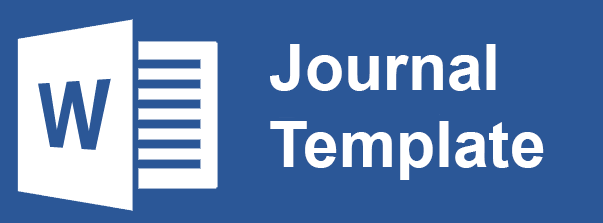PELATIHAN LITERASI DIGITAL UNTUK GURU PAUD DI WILAYAH SUKABUMI JAWA BARAT
DOI:
https://doi.org/10.24853/an-nas.1.1.47-56Keywords:
Guru PAUD, Pelatihan Literasi Digital, Pembelajaran ITAbstract
Banyak guru PAUD yang belum memahami manfaat penyajian pembelajaran melalui perangkat IT khususnya para guru PAUD di wilayah Sukabumi Jawa Barat, terutama hal-hal yang berkaitan bagaimana cara untuk memperoleh program-program yang tepat dan baik untuk digunakan sebagai media pembelajaran digital dengan biaya yang murah dan mudah. Berdasarkan hal tersebut maka pelatihan literasi digital untuk guru PAUD di wilayah Sukabumi Jawa Barat sangat diperlukan, agar guru terampil memperoleh dan memanfaatkan program-program pembelajaran berbasis teknologi digital serta menerapkannya di setiap pembelajaran. Pelatihan literasi digital yang dimaksud adalah bagaimana guru memanfaatkan situs pembelajaran melalui aplikasi play store pada hand phone android untuk memperoleh free books dan men-download berbagai materi atau media pembelajaran dengan youtube. Subjek sasaran kegiatan adalah 18 orang guru PAUD se-kota Sukabumi dan mahasiswa PGPAUD di Universitas Muhammadiyah Sukabumi (UMMI). Penentuan sasaran merupakan hasil kajian kebutuhan di tengah masyarakat Sukabumi yang belum memahami pemanfaatan dan penggunaan perangkat pembelajaran IT yang murah dan mudah dari aplikasi di playstore dan youtube HP android atau laptop yang dimilikinya, untuk lebih menarik minat belajar literasi anak. Melalui subjek sasaran kegiatan diharapkan dapat meningkatkan pengetahuan cara meningkatkan literasi pada anak usia dini melalui program-program digital, diharapkan guru PAUD menjadi agen perubahan yang modern dan berkeunggulan di tengah masyarakat.References
Aabo, S. 2005. The Role And Value Of Public Libraries In The Age Of Digital Technologies. Journal of Librarianship and Information Science. https://doi.org/10.1177/0961000605057855
Belshaw, D. A. J. 2012. What Is 'Digital Literacy'? : A Pragmatic Investigation. ISNI: 0000 0004 2712 7386. Durham University.
Buckingham, D. 2010. Defining Digital Literacy, What Young People Need to Know About Digital Media. Defining Digital Literacy. In: Bachmair B. (eds) Medienbildung in neuen Kulturräumen. VS Verlag für Sozialwissenschaften. VS Verlag für Sozialwissenschaften. https://doi.org/10.1007/978-3-531-92133-4_4.
Buckingham. D. 2015. Defining Digital Literacy. What Do Young People Need To Know About Digital Media?. Nordic Journal of Digital Literacy, 2006–2016, p. 21–34. ISSN online: 1891-943X. Loughborough University, UK
Chase, Z., and Laufenberg, D. 2011. Embracing The Squishiness Of Digital Literacy. Journal of Adolescent & Adult Literacy. Vol. 54, Issue 7. International Literacy Association
Eco, U. 1979. The Role of The Reader. Bloomington: Indiana UP
Erdogdua, F and Erdogdub, E. 2014. The Impact Of Access To ICT, Student Background And School/Home Environment On Academic Success Of Students In Turkey: An International Comparative Analysis. Computers & Education. ELSEVIER. Volume 82, March 2015, Pages 26-49. Computers & Education. https://doi.org/10.1016/j.compedu.2014.10.023
Fauvillea, G., Dupont, S., von Thun, S., Lundind, J., 2015. Can Facebook Be Used To Increase Scientific Literacy? A Case Study Of The Monterey Bay Aquarium Research Institute Facebook Page And Ocean Literacy. Computers & Education. ELSEVIER. Volume 82, March 2015, Pages 60-73. https://doi.org/10.1016/j.compedu.2014.11.003
Gilster, P. 1997. An Excerpt from Digital Literacy. John Wiley & Sons, Inc.
Koltay, T. 2011. The Media And The Literacies: Media Literacy, Information Literacy, Digital Literacy. Media, Culture & Society. SAGE Journals. First Published March 23, 2011 https://doi.org/10.1177/0163443710393382
Meyers, EM., Erickson, I. Small, RV. 2013. Digital Literacy and Informal Learning Environments: An Introduction. Journal Learning, Media and Technology Volume 38, 2013 - Issue 4: Digital Literacy and Informal Learning Environments pp. 355-367. https://doi.org/10.1080/17439884.2013.783597
Mohammadyari, S and Singh, H. 2015. Understanding The Effect Of E-Learning On Individual Performance: The Role Of Digital Literacy. Computers & Education Journal ELSEVIER. Volume 82, March 2015, Pp11-25. https://doi.org/ 10.1016/ j.compedu.2014.10.025
Ng, W. 2012. Can We Teach Digital Natives Digital Literacy?. Journal Computers & Education. Volume 59, Issue 3, November 2012, Pages 1065-1078 https://doi.org/10.1016/j.compedu.2012.04.016
Prensky, M. 2001. Digital Natives, Digital Immigrants. MCB University Press, Vol. 9 No. 5, October 2001
Tan, E. 2012. Informal Learning On Youtube: Exploring Digital Literacy In Independent Online Learning. Journal Learning, Media and Technology Volume 38, 2013 - Issue 4: Digital Literacy and Informal Learning Environments. Pp. 463-477 Published online: 22 Apr 2013. https://doi.org/10.1080/17439884.2013.783594
http://pundi.or.id/2019/06/17/pemerataan-akses-dan-kualitas-pendidikan-anak-usia-dini-paud-di-indonesia/
https://edukasi.kompas.com/read/2018/10/26/10503121/pendidikan-anak-usia-dini-apa-yang-harus-dicermati-oleh-orangtua
https://www.generasimaju.co.id/mengenal-sistem-paud-sebagai-pendidikan-awal-bagi-anak
http://anggunpaud.kemdikbud.go.id/index.php/berita/index/20181121103026/Pengaruh-Pendidikan-Terhadap-Tumbuh-Kembang-Anak
Downloads
Published
Issue
Section
License
Authors who publish with this journal agree to the following terms:
- Authors retain copyright and grant the journal right of first publication with the work simultaneously licensed under a Creative Commons Attribution License that allows others to share the work with an acknowledgement of the work's authorship and initial publication in this journal.
- Authors are able to enter into separate, additional contractual arrangements for the non-exclusive distribution of the journal's published version of the work (e.g., post it to an institutional repository or publish it in a book), with an acknowledgement of its initial publication in this journal.
- Authors are permitted and encouraged to post their work online (e.g., in institutional repositories or on their website) prior to and during the submission process, as it can lead to productive exchanges, as well as earlier and greater citation of published work (See The Effect of Open Access).


